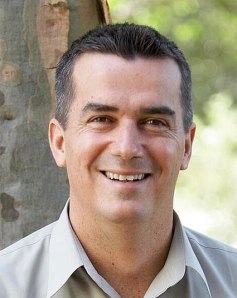So this is my journey, at this point.
Paul Gilding has inspired me not to feel marginalized. Not to slink around as if I was carrying a bunch of crazy ideas, rather than having a partial grasp of what will soon be obvious to most of us. Paul is concerned about the planetary ecosystem, but is focused on the global economy as being the most vulnerable part of that system. The part that, when it breaks, will move us out of our torpor and onto a “wartime footing.”
Stephen Jenkinson also cares about the global environment, but he is focused on the daily culture of our lives, and inspires me to refocus on that myself.
We agree Industrial Civilization has gotten us into crazy situation. I believe that is partially because
“…when Science talked mainstream culture out of believing in heaven and hell,
it offered us no emotionally-satisfying mythic story,
leaving us, as a culture, terrified of death.“
The overall mission of my website, my overall message, is to offer our emerging culture an emotionally-reassuring vision of our place in the larger scheme of things. I need this, and am gratified to have it. It helps me to accept my approaching death, and the death of Industrial Civilization. Like Stephen, I believe that community is the basic unit of human life, not the individual. Alone or separated we are undernourished and inadequate. Working with those we know well –whether we actually like them or not– our lives have meaning and we can love life, even in challenging circumstances.
In my previous post I presented some of Stephen Jenkinson’s thinking in his own voice. That may have been enough for you, dear reader, in which case you can skip over listening to the final two segments. They add richness, but you already have the flavor.
Part 2 of my edit of Stephen Jenkinson’s interview, focusing on our response to our dying culture. Nine minutes.
- Parenting from beyond the grave [as a model for living during cultural breakdown] a challenge to live into and accept the pain of our situation. To really understand what we had and what we are losing.
- Asking that your kids pay close attention to what is happening
- Practicing the skill of being human
- The Irish potato famine as an example of a dying culture
- “Learning” the dying of a failed culture
- Accepting your too-short life and making the most of it, not trying to “preserve”
- What could bring our full humanity to the surface for more than just a few of us?
- Stephen’s answer: a rite of passage into adulthood at puberty
- The sad consequences of not getting a clear end to childhood
The section of audio covered in the above segment
Part 3 of my edit. Eleven minutes
- Here’s a frame of mind to hold for the times ahead:
- I am here because I am needed to help the culture die well. That’s the redemptive vision.
- Not having children in these times.
- Human beings should be in the business of making culture
- Everything that dies is life-giving
- A new culture can only grow out of the decomposed elements of the old
- Being an elder, learning to be an elder
- Not retiring to “safe” communities
- What does it take to fall in love with being alive
- Once you realize your life isn’t going to last…then you have the chance…
- Italian weddings and Irish funerals
- The twins of sadness and loving-being-alive
- Grief is a learned thing [we need to learn it well]
- We just might be fine.


